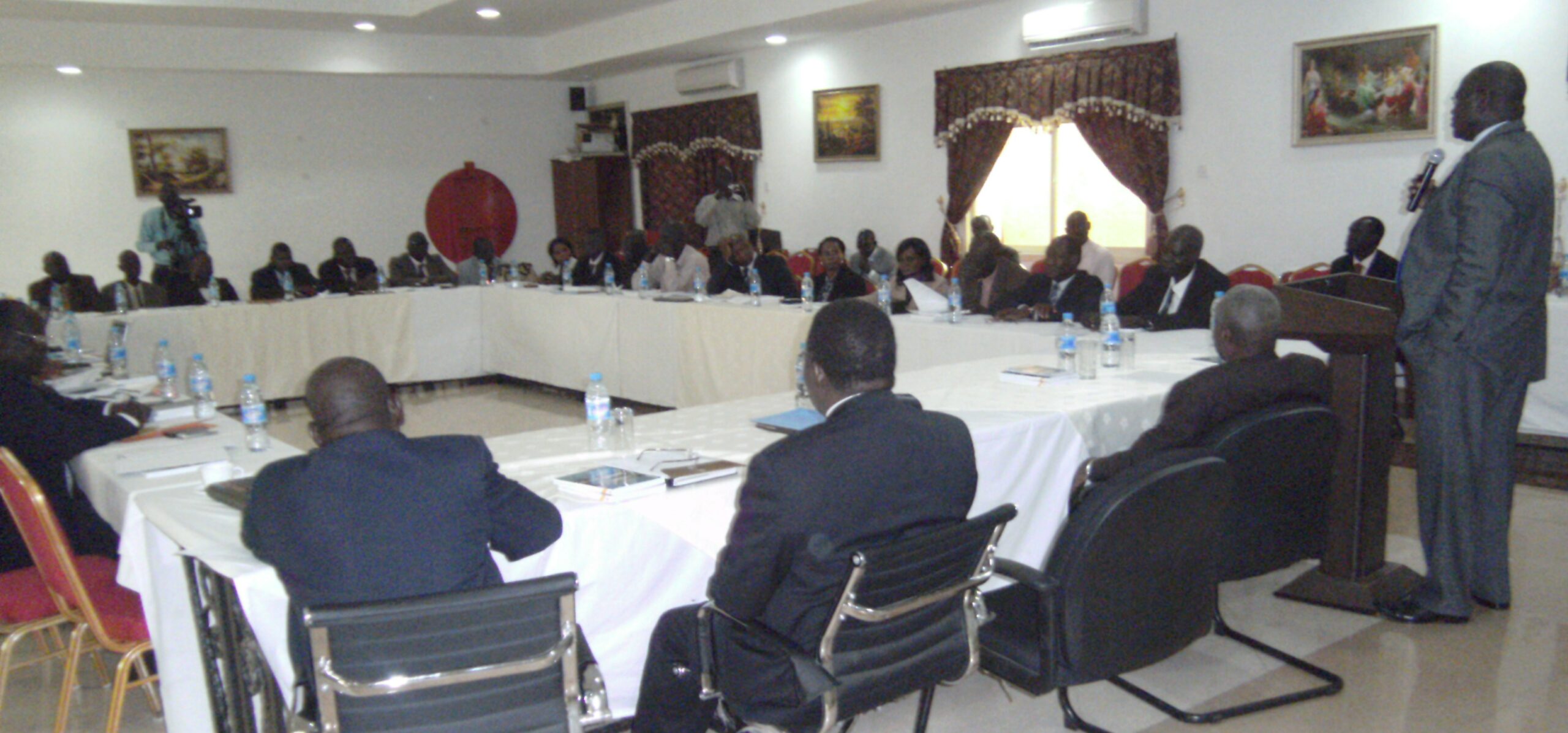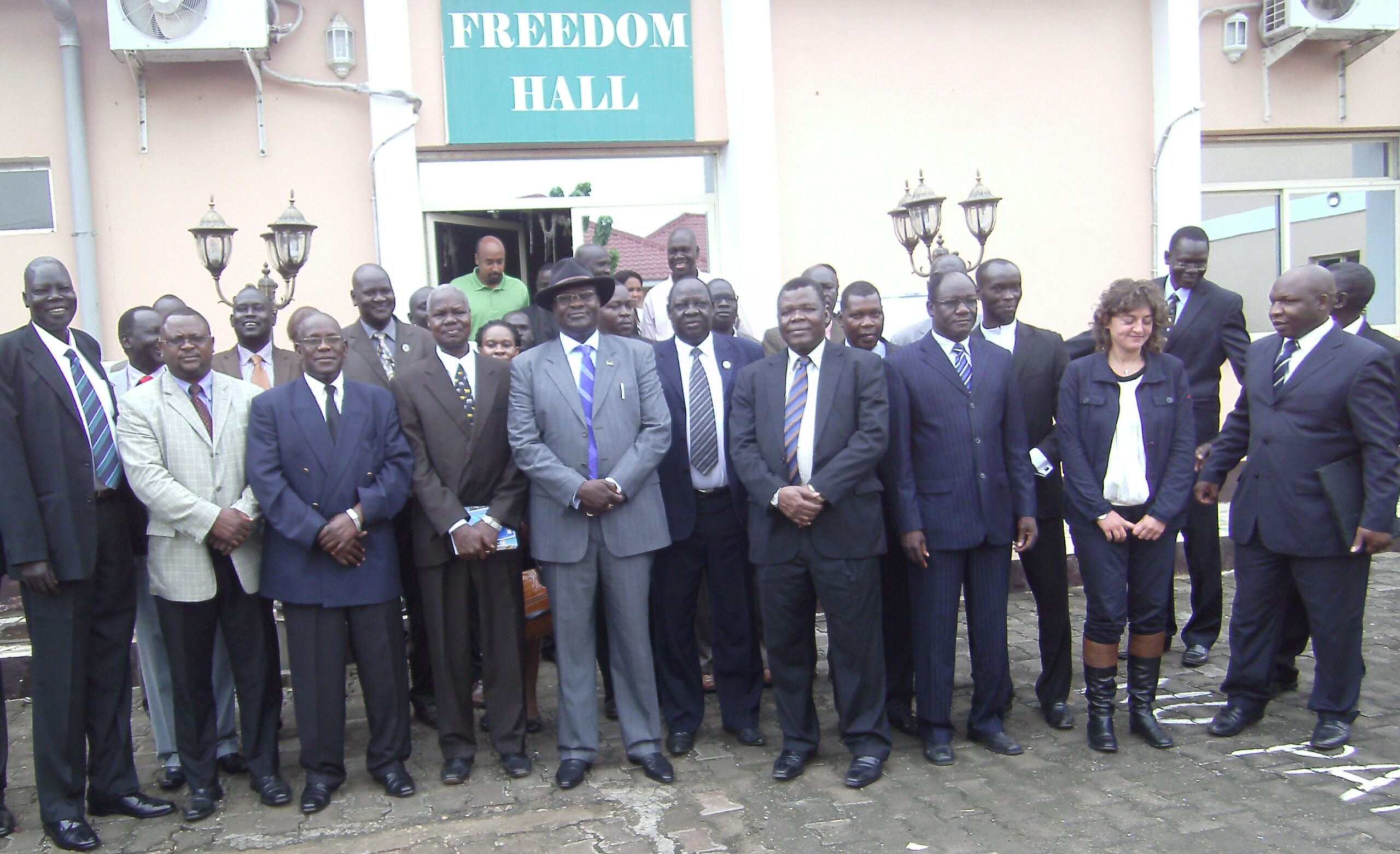South Sudan holds conference on judicial independence and accountability
September 5, 2012 (JUBA) – South Sudan on Wednesday organized its first conference on the independence of the judiciary organ since it became independent 13 months ago.

The two-day conference drew participants from judges and lawyers in the judiciary, ministry of justice, South Sudan Law Society as well as South Sudan Bar Association in addition to legal experts from the neighboring countries.
The gathering aimed to examine the current judicial system in South Sudan and the challenges faced in the legal profession. The status quo was reviewed while sharing the experiences of other countries in the development of national and customary laws.
In his opening remarks the South Sudan’s vice president, Riek Machar Teny, reaffirmed the constitutional independence of the judiciary organ in the country.
He also urged the leadership responsible for the judicial system to develop its presence throughout the nation by establishing its autonomous branches and recruiting more judges.
Hundreds of criminal cases are pending in the country due to lack of judges to try such cases.
Machar also reminded the gathering about the diversity of the people in the country, adding that this reality needs to be reflected in the development of justice system across the nation.

He urged the judges and lawyers convening the conference to look into the possibility of recommending the need to implement the proposed establishment of autonomous judicial systems at the state and local levels in order to suit the decentralization system in the country.
He further added that South Sudan being a heterogeneous country should be reflected in the justice system by formally putting into consideration the application of the customary laws at the appropriate levels of governance.
Legal practitioners should also adopt the state of the art in the legal profession in response to the changing world, he said, adding that this has been frustrated by the conservativeness of the judges.
The higher learning institutions in South Sudan should be involved in devising mechanisms to develop the required legal instruments, he said.
The President of the South Sudan Supreme Court, Chief Justice Chan Reec Madut, while addressing the participants in the same conference applauded the timing of the gathering, adding that his judicial organ wanted to consolidate the concept of independence of the judiciary and its accountability.
Madut lamented the situation in which he told the conference that judges in South Sudan in some instances were intimidated, sent away or beaten by senior members of the executive, particularly in the states, when they disagree with rulings on certain court cases.
Madut further explained that ignorance about the independence of the judiciary organ resulted to such a situation and called on the executive to further educate itself on the independence of the organ.
South Sudan also has shortage of judges to administer justice but Madut however assured that his organ will soon begin to recruit more judges who will be assigned to the various states in the country.
The deputy minister of Justice, Paulino Wanawilla, urged the judges in the country to always stand their ground and not succumb to any intimidation by the executive in the course of administering justice.
He commended a situation in which a judge was intimidated by armed supporters who tried to let free their fellow by force from a court of law but the presiding judge stood his ground and prevailed over the unlawful attempt.
He further explained that the independence of the judiciary is constitutionally clear but if judges do not internalize such independence they will always succumb to pressures.
The chairman of the South Sudan Law Society, Dong Samuel Luak, also urged the lawmakers to enact the necessary law for the organization so that it legally operates in a self-regulatory manner.
(ST)
